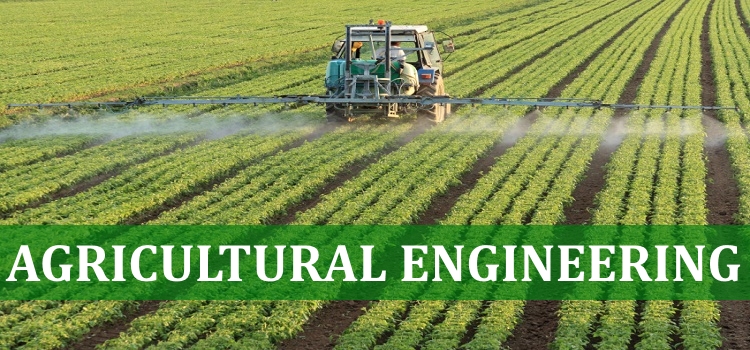Agricultural Engineers: Jobs, Career, Salary and Education Information
 The biggest source of livelihood for the Indian rural population is agriculture. Many of these farmers face problems due to the unavailability of proper resources. Agriculture engineers help farmers by providing needful resources like efficient machines for productive farming. Agricultural engineers’ work resides in the areas of farming, aquaculture (seafood farming), forestry and food processing. Agricultural engineers work on projects that develop a climate control system to increase the productivity of livestock and comfort. Many of the agricultural engineers work to increase the storage capacity and efficiency of refrigeration. Others use animal wastes to develop fertilizers for better farming practices. The ones with coding skills channelize artificial intelligence and geospatial systems into farming to increase crop production.
The biggest source of livelihood for the Indian rural population is agriculture. Many of these farmers face problems due to the unavailability of proper resources. Agriculture engineers help farmers by providing needful resources like efficient machines for productive farming. Agricultural engineers’ work resides in the areas of farming, aquaculture (seafood farming), forestry and food processing. Agricultural engineers work on projects that develop a climate control system to increase the productivity of livestock and comfort. Many of the agricultural engineers work to increase the storage capacity and efficiency of refrigeration. Others use animal wastes to develop fertilizers for better farming practices. The ones with coding skills channelize artificial intelligence and geospatial systems into farming to increase crop production.
What is the Education required to become an Agriculture Engineer?
Doing B.Tech course in Agricultural engineering is the first and foremost step to become an Agriculture Engineer. The minimum eligibility criteria to study agricultural engineering is passing 10+2 with biology, mathematics, and chemistry as main subjects to become eligible for state or national level engineering entrance examinations. On average the course fee for studying agricultural engineering is INR 50,000 – INR 1 lakh. The main subjects that agricultural engineering branch has in syllabus are Computer Technology, Engineering Chemistry, Engineering Physics, Manufacturing Process, Geology and Soil Mechanics, Principles of Agricultural Economics, Basic Horticulture, Surveying and Leveling, Fundamentals of Soil Science, Principals of Food Science, Fundamentals of Agri-Business Management, Forest Resource Management, Post-Harvest Engineering of Agriculture Crops, Tillage and Sowing Equipment, Hydrology, Soil Conservation and Water Harvesting, Process Engineering of Spices and Engineering Crops, Food and Dairy Engineering, Field Crop Machinery, Irrigation Equipment, Drip and Sprinkler Technology, Storage and Package Technology and Application of GIS in Water Resource Management.
Career Scopes of an Agriculture Engineer
As per the reports presented by FICCI, NASCOMM, and EY; by 2022 around 10 percent workers out of 600 million workers in India will be working in the organized sector and new-age methods in the agriculture and sustained the growth of the manufacturing.
The top positions where an agricultural engineer works are Automation, Build, and Enterprise Support. As an Automation Manager, the duty of an agricultural engineer is to asses and monitor entire agricultural automation process. The build engineer helps to automate the software deployments and assists the business delivery teams to prioritize applications and optimize pipelines for delivery, while the enterprise support engineer answers customers’ queries and resolves company problems.
An engineering graduate gets good jobs and this rule is applicable for agriculture engineers too. The related careers for agricultural engineers are Agriculture Food and Science Technicians, Agricultural Crop Engineer, Researcher, Food Supervisor, Agronomist, Plant Physiologist, Microbiologist, Soil Scientist, Survey Research Agricultural Engineer. The agricultural engineers work in strategizing, dictating and designing the dairy effluent schemes, irrigation and water control systems. The research for better agricultural practices and implement them in daily farming practices. Agricultural engineers also prevent soil from erosion through soil management and conservation. Food engineering and processing of agricultural products is another important work for agricultural engineers.
Agricultural science is another field that gives ample of opportunities too. Mostly, agricultural science deals with plant breeding and genetics, plant pathology, horticulture, soil science, entomology, and minimizing the effects of pests on agriculture.
A fresher agricultural engineer earns between INR 20,000 – INR 25,000 per month in the government sector. The pay scale increases with experience and efficiency of the engineer.

